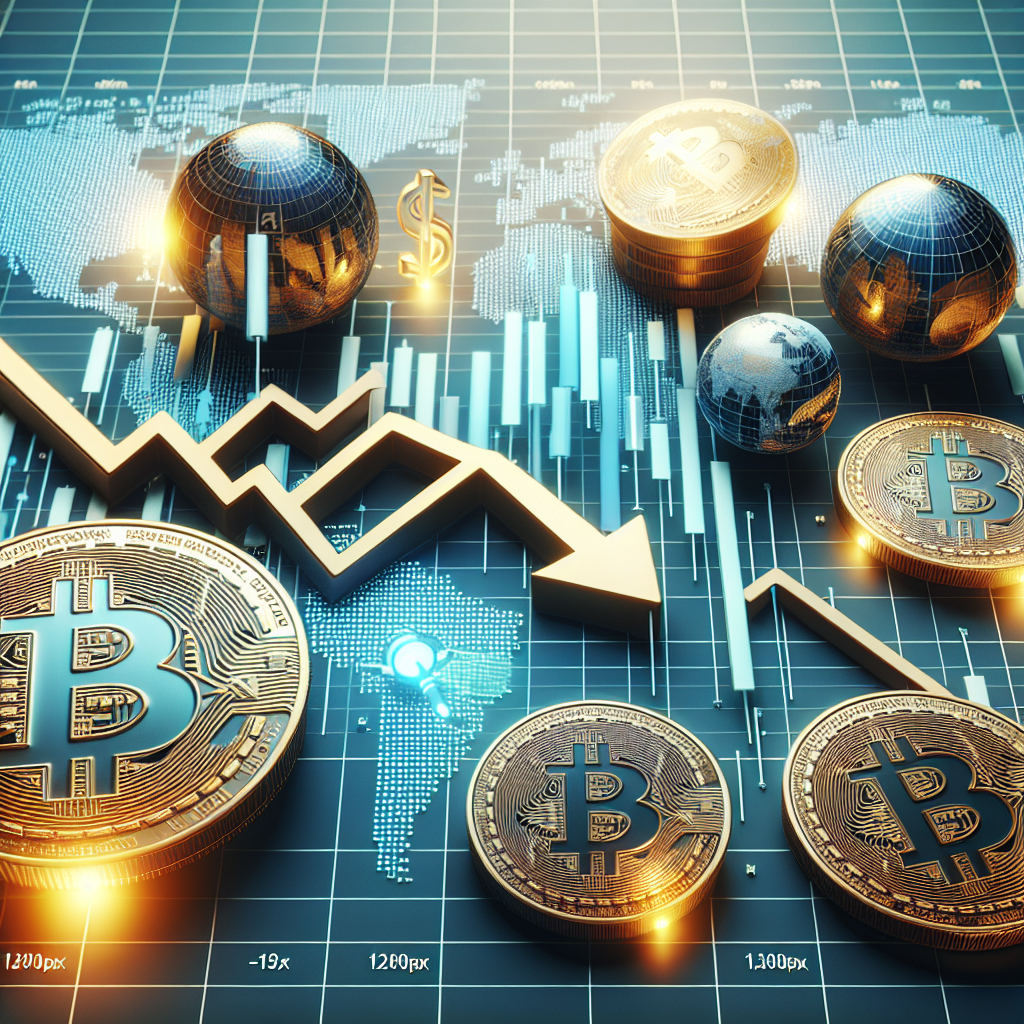Bitcoin
Bitcoin Price Drops as Trump Expresses Uncertainty Over Xi Meeting

U.S. President Donald Trump has introduced an element of uncertainty regarding his anticipated meeting with Chinese President Xi Jinping, casting a shadow over international economic relations. His comments, which came during a speech at a luncheon in Washington, D.C., have consequently led to a notable fluctuation in the cryptocurrency market, with Bitcoin experiencing a temporary decline in its value.
In addressing the gathered attendees, President Trump explicitly mentioned that the much-anticipated meeting with President Xi might not come to fruition as planned. This statement contradicts earlier affirmations from Trump regarding his intent to meet Xi on October 31 at the APEC summit in South Korea, where crucial trade discussions were expected. Trump’s new stance highlights the vulnerability of the planned discussions amid the ongoing trade tensions between the United States and China.
Despite his remarks on the uncertainty of the meeting, Trump emphasized his desire to secure a beneficial trade agreement with China. According to him, reaching a constructive deal remains a priority as he anticipates a favorable outcome for both nations. However, the president’s recent hesitation suggests that the path to a trade resolution continues to face obstacles.
Adding pressure to these negotiations is Trump’s recent warning of potential tariffs. He intimated the possibility of imposing a heightened tariff of approximately 157% on Chinese imports if a trade deal isn’t finalized by early November. This threat follows Trump’s earlier imposition of a 102% tariff on certain Chinese goods, which escalates tariff rates significantly from previous measures set to take effect almost concurrently. These aggressive economic stances are seen as leverage to push Beijing into negotiating terms that might favor American economic interests.
The ripple effect of Trump’s statements was immediately felt in the financial markets, particularly in the cryptocurrency sector. Bitcoin, which had been riding a wave of gains, experienced a sharp retreat. It fell from a recent high of about $114,000 to a lower level of approximately $109,500, showcasing the cryptocurrency’s sensitivity to global political developments. This drop contrasted with an earlier surge that sparked optimism among investors, suggesting a possible return to bullish trends for Bitcoin.
Amidst these developments, Bitcoin is showing signs of gradual recovery, hovering around the $112,500 mark, as traders speculate on the possibility of climbing back to previous high levels. The day’s earlier upward movement had instilled a degree of optimism, hinting that the bull market could regain momentum despite temporary setbacks.
This period of volatility parallels a significant movement in the gold market. Recently, gold experienced one of its most substantial daily drops since 2013, suggesting a potential shift of investor interest towards Bitcoin. As gold reached unprecedented highs, surpassing a price of $4,350, some analysts believe that investors may be reallocating their assets, favoring Bitcoin in pursuit of testamentary gains in the thriving cryptocurrency market.
The interconnected nature of global politics and economics is once again on display, evidencing how diplomatic negotiations can profoundly influence financial sectors. Stakeholders in international trade and investments remain on edge as the unfolding dynamics between the U.S. and China continue to impact markets worldwide. Meanwhile, investors and economists will closely monitor subsequent announcements from both nations while keeping a keen eye on market trends that shape their economic strategies.
As developments continue to unfold, the prospect of the U.S.-China trade dialogue remains a focal point, with implications reaching far beyond diplomatic circles, affecting markets, investors, and economies on a global scale. The outcome of these diplomatic engagements promises to hold significant sway over the future of international trade and economic policies in the coming months.
-

 Press Releases2 years ago
Press Releases2 years agoGaming Technologies of the New Time!
-

 Altcoins12 months ago
Altcoins12 months agoBitcoin Declines Below $80K: deVere CEO Nigel Green Remains Bullish on Long-Term Outlook Following Strategic U.S. Bitcoin Reserve Announcement
-

 Altcoins11 months ago
Altcoins11 months agoCalls for Enhanced Discussion on Bitcoin as Brazil’s Reserve Asset: A Move Towards ‘Internet’s Gold’
-

 Bitcoin1 year ago
Bitcoin1 year agoBitcoin Surges Past $64K as SEI and POPCAT Lead Daily Crypto Gains on September 25
-

 Press Releases2 years ago
Press Releases2 years agoEvo Exchange: Redefining the Decentralized Exchange Landscape
-

 Bitcoin8 months ago
Bitcoin8 months agoGrayscale Investments Submits Draft Registration for IPO, Aiming for Public Trading in U.S.
-

 Press Releases1 year ago
Press Releases1 year agoCODE, a Newly Born Project Brings Decentralization Back to the Main Menu
-

 Bitcoin7 months ago
Bitcoin7 months agoPeter Schiff Critiques New Crypto Legislation, Claims Bitcoin (BTC) Gains are Short-Lived




